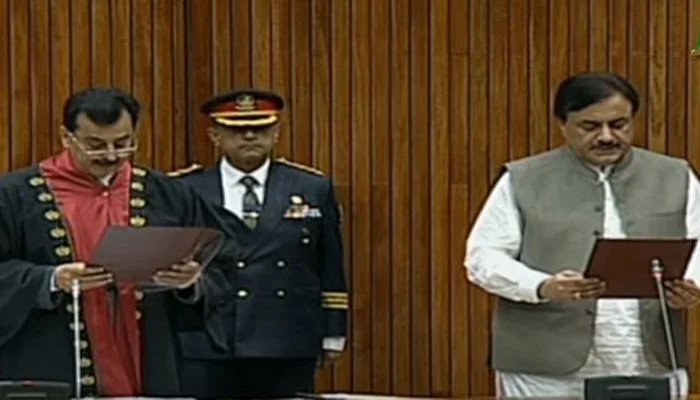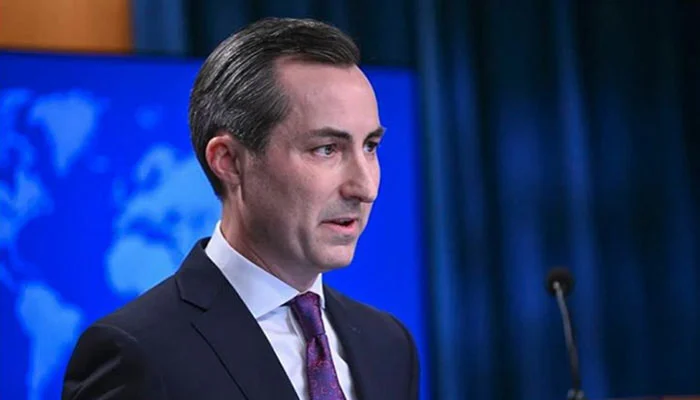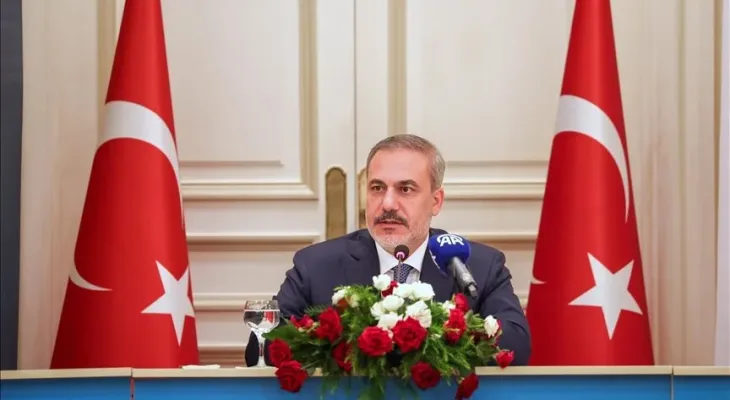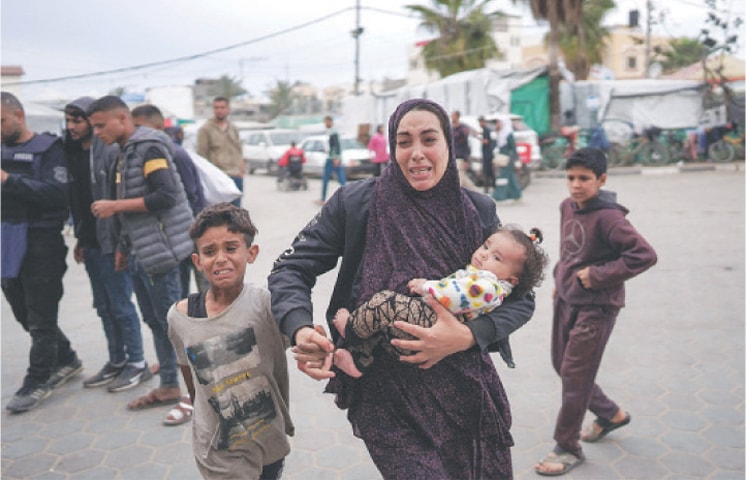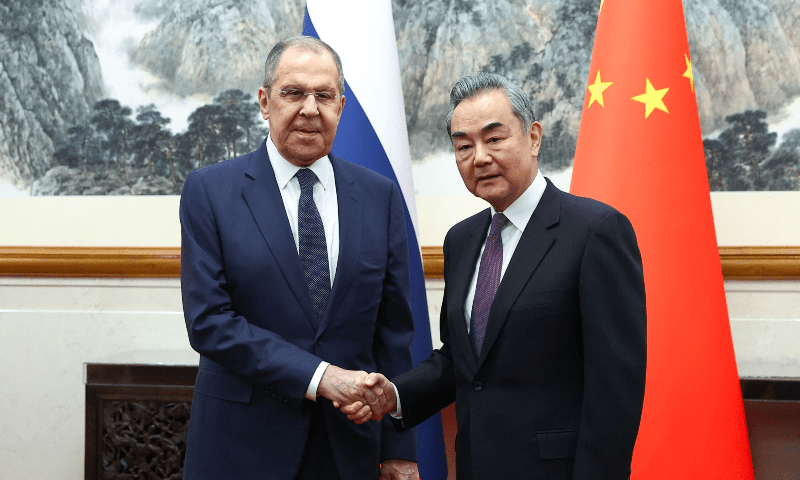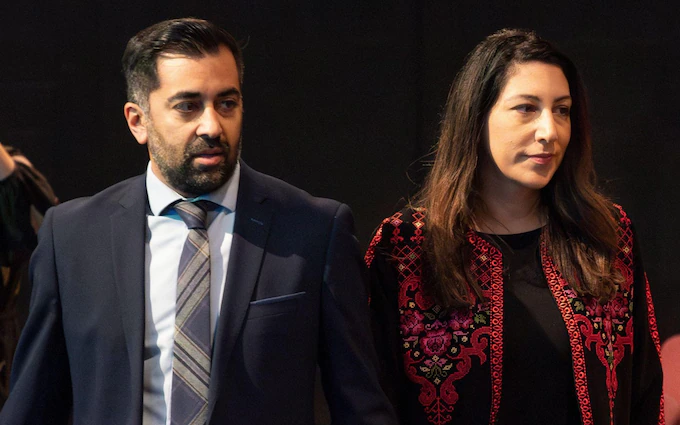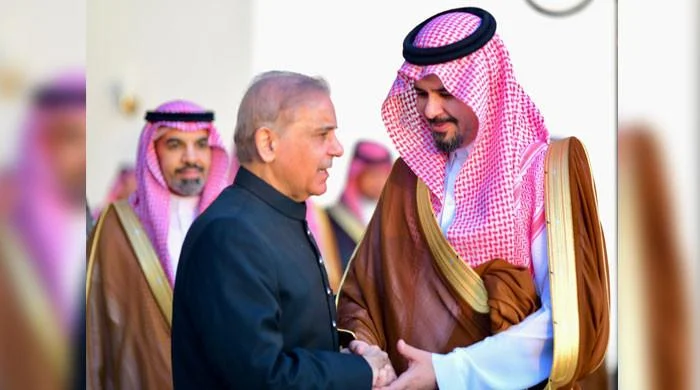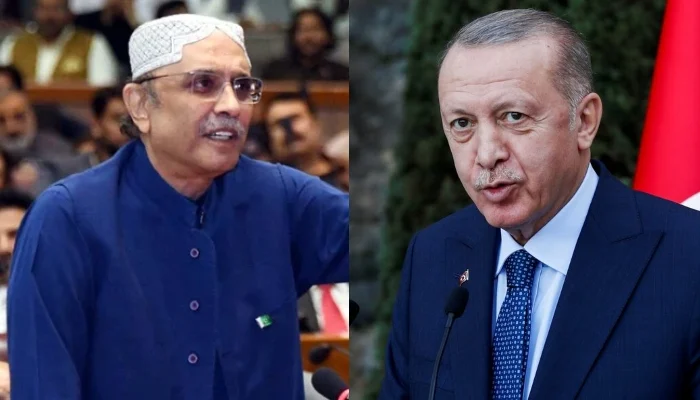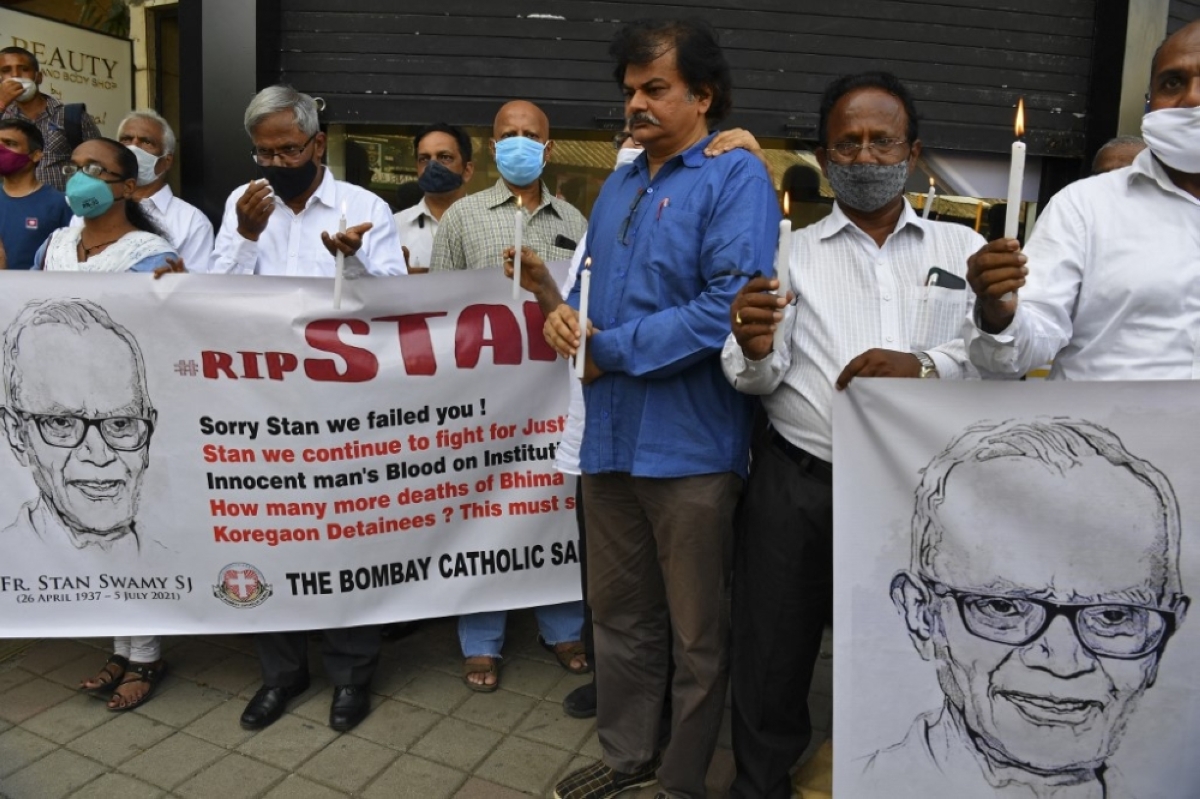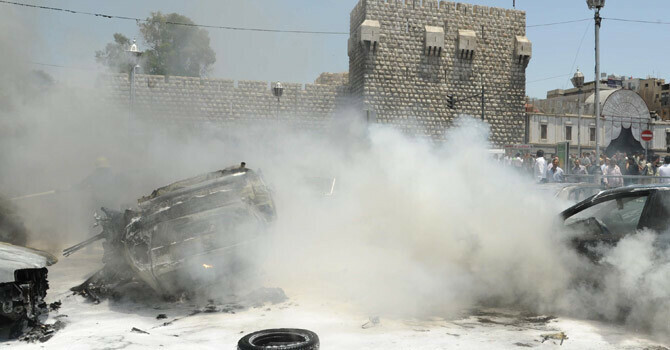ISLAMABAD: Pakistan Peoples Party (PPP) leader Syed Yusuf Raza Gilani and Pakistan Muslim League-Nawaz’s (PML-N) Saidal Nasir Khan Tuesday were elected as the Senate chairman and deputy chairman “unopposed” amid protests by the Pakistan Tehreek-e-Insaf (PTI).
No candidate submitted nomination papers against them for the coveted Senate posts.
Earlier today, 41 newly-elected senators took oath as PTI members protests on the floor of the house, terming the process of election of chairman and deputy chairman as “unconstitutional” due to an “incomplete house”.
President Asif Ali Zardari had summoned the house to meet for its inaugural session today for the oath-taking of newly-elected members and the election of the Senate chairman and deputy chairman.
When the session began today with Senator Ishaq Dar as the presiding officer, the PTI members launched the protest and demanded adjournment of the house till the election of senators from Khyber Pakhtunkhwa.
Speaking on the floor of the house, PTI leader Senator Ali Zafar demanded the Senate election be deferred as Article 59 of the Constitution requires 96 members to be present in the house for the election of its chairman and that the “process would be unconstitutional till the house is complete”.
“We will not accept this illegal election till the senators from Khyber Pakhtunkhwa are duly elected and are present here,” he insisted.
Lamenting that Senate polls in Punjab were held excluding the reserved seats, the PTI leader said that the election of the house’s chairman and deputy chairman are being made “controversial”.
“We wanted to participate in the election [of chairman and deputy chairman], however, we would not be part of it where it is ultra vires of the Constitution,” Senator Zafar added.
Blaming the Election Commission of Pakistan (ECP) for making controversial decisions, he called for the Senate session to be adjourned till senators from KP are elected.
In response to the objections raised by the opposition members, Federal Law Minister Azam Nazeem Tarar stressed that Article 60 of the Constitution provisions elections for the posts of the Senate chairman and deputy chairman as soon as the key posts are vacated.
Stressing that the term “duly constituted” was only used as the Senate simply didn’t exist in our legislative system before the 1973 Constitution. However, he added, that the framers of the Constitution didn’t include the said term with the election of the chairman.
“The word ‘duly constituted’ is also not used in Article 53, which pertains to the constitution of National Assembly as it was already in existence when the [1973] Constitution was formulated,” Tarar said.
Lamenting the reasons behind the postponement of Senate polls in the Khyber Pakhtunkhwa (KP), the law minister said that the elections weren’t postponed due to any calamity.
He added that it was the KP government’s failure as it didn’t abide by the Peshawar High Court’s (PHC) orders wherein it had directed to ensure administering of the oath to MPAs elected on reserved seats in the province.
“Had it been a case of force majeure, where the senate polls weren’t held [in KP] due to any natural disaster, this House would’ve decided whether to wait for them [senators elected from the province],” Tarar added.
Recalling the election of Senate chairman and deputy chairman in 2015 where Raza Rabbani and Abdul Ghafoor Haideri were elected to the said posts, respectively, the law minister said that even then an objection was raised against the election owing to the absence of four senators hailing from the then Federally Administered Tribal Areas (FATA).
However, the House proceeded nevertheless as Article 67 states that the absence of any member(s) doesn’t invalidate the proceedings of the Senate, Tarar added.
“The House is complete for Constitutional purposes,” he concluded.
He also blamed the PTI for creating obstacles in the election of senators from KP after which polls were postponed by the ECP.
Following legal explanation by the minister, Ishaq Dar gave his ruling on the matter.
“In the light of explanation given by the worth law minister, with reference to the provisions of the Constitution of Islamic Republic of Pakistan, the objection is overruled.”
After taking oath as the Senate chairman, Gilani gave a speech, saying, “It’s a unique honour to be elected chairman of this august house. I am thankful to Allah Almighty for having been given this opportunity. I am also thankful to my party, my leadership and allies.”
He said the senators presented the unity of the federation, adding that Senate represented the diversity and strength of the nation.
Recounting and sobbing over “judicial murder” of former prime minister Zulfikar Ali Bhutto, the Senate chairman said the Supreme Court of Pakistan admitted its historical injustice.
“54 years ago in April 1970, Pakistan passed its constitution, which gave birth to the Senate. 45 years ago in April 1979, the creator of the constitution, Bhutto was murdered. Last month, Supreme Court acknowledged the judicial murder and admitted its historical injustice,” he said.
He recalled that Bhutto tackled the crisis situation in the country after becoming the prime minister.
“Real attempt was made to empower the provinces and acknowledged and cherished each province’s history, culture and language. Rights were granted to religious minorities, women and poor. His constitution gave a roadmap to fight and flourish,” he said.
Gilani said in the present moment, the crisis was deep. Pakistan faced an assault of those who sought to divide and polarise us, those who sought to incite hatred, those who sought to replace norms of stability and abuse democracy.
“On the many crisis we confront, the most dangerous is an attempt to sow hatred amongst us, toxic polarisation and incitement of violence,” the Senate chairman said.
Gilani said his ambition was to build bridges, enable dialogue and provide space for disagreements within the parliamentary norms for progress of the country.
“When I became the PM, it was time of great fear and apprehension with systematic dismantling of democratic institution, a global economic recession and a divided country but we steadied the ship.
“InshaAllah, we will succeed in returning the senate to its real glory as a powerful legislative house. By the grace of Allah, I have held high regard whether in the PM house or in the prison,” he said.
The former PM said he would not compromise on the dignity of the house or its members.
“May Allah help us all. Thank you once again. Pakistan Zindabad,” he said drawing curtain on his speech.


